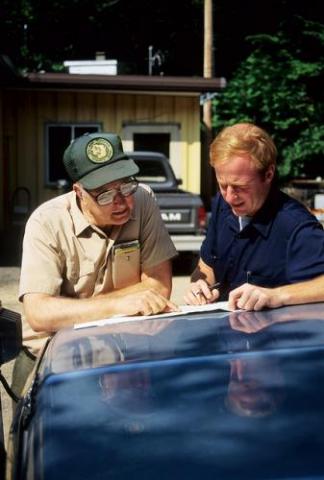
One of the most important factors in your ability to influence landowners is the relationship you forge with them. This relationship is, at least in part, the result of the experience landowners have with your organization. Which brings us to the importance of the Process by which you deliver the information or services that you’ve promised landowners.
Consider the most basic product of forestry: the management plan. SFFI recently partnered with the Massachusetts Department of Conservation and Recreation Service Forestry Program and the Massachusetts Woodlands Institute to conduct a focus group study aimed at understanding the significance and value of different elements of the management plan for landowners. One of the main findings from this study was that the plan development process—i.e. the interaction between the forester and the landowner before, during and after plan preparation—plays a big role in how landowners value and use their plan. For example:
- Many landowners are able to articulate specific goals for their woods only after they talk with their forester about the possibilities afforded by their woodland and the government programs and resources available for realizing those possibilities.
- Many landowners have little idea of how to go about implementing management recommendations. They want guidance on what’s most urgent, what they can do themselves, how they can hire professionals to do the rest, and what these actions mean for them financially. While some of this can be described in the management plan, what they really need is a good conversation to flesh out these issues, along with some encouragement to get started on those that seem most doable.
- While many foresters see the management plan as a product delivered, landowners are looking for it to be the start of an ongoing relationship with a professional. Many landowners specifically requested ongoing communication to cue recommended actions.
(Click here to see the full report.)
A management plan can indeed be the gateway to more active land management. However, it is not the plan itself, but the process of plan preparation and the follow-up communication that leads to meaningful landowner engagement and action.
These focus groups in Massachusetts reinforced the importance of treating each landowner-focused service, product or interaction as part of the process of engagement. In fact, I think this concept might be important enough to warrant it’s own place in the marketing mix —Process, the Sixth P.
Comments
Great tip!
Agreed! I need more tips like these!